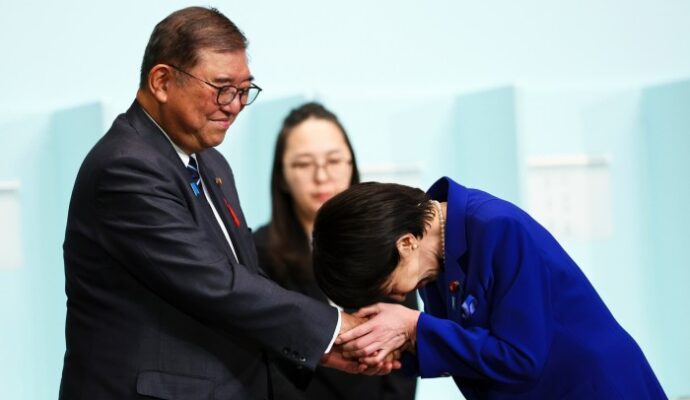Unlock the Editor’s Digest for free
Roula Khalaf, Editor of the FT, selects her favourite stories in this weekly newsletter.
Masayoshi Son’s SoftBank Group recorded a surprise $3.5bn profit in its latest quarter as it prepares to deploy tens of billions to fulfil sweeping ambitions in artificial intelligence.
The Japanese tech conglomerate said on Tuesday it made a net profit of ¥517.2bn ($3.5bn) in its fiscal fourth quarter, driven by gains in its telecommunications holdings and improved valuations for other key investments.
The fourth-quarter profit was well ahead of the ¥231bn it made in the same period last year. It also beat analyst expectations of a small ¥26.9bn loss, according to LSEG data, underlining the volatility in the business. The quarterly performance drove a full-year gain of ¥1.2tn, the group’s first annual profit in four years.
“The fourth-quarter profit was a positive surprise, but the big thing remains a real lack of clarity around Stargate,” said Kirk Boodry, a SoftBank analyst at Astris Advisory. “There was a real sense of urgency last quarter about Stargate, but that has not yet turned into information.”
Boodry attributed the unexpected quarterly profit to gains in telecom holdings, including T-Mobile and Deutsche Telekom, as well as in Alibaba shares and its portfolio of private companies.
The group recorded an investment gain of ¥177bn in its tech-heavy Vision Funds, with South Korean ecommerce group Coupang and TikTok owner ByteDance helping to lift performance. The Vision Funds fell to a ¥352bn loss in the last quarter.
The results come at a critical point for SoftBank, which is investing heavily in artificial intelligence, including up to $30bn in OpenAI and preparing to deploy an initial $100bn in its joint Stargate AI infrastructure project.
Stargate involves a massive build-out of data centres, primarily in the US, funded through project financing and in a partnership with OpenAI, as well as other groups including Oracle, Microsoft and Nvidia.
Chief financial officer Yoshimitsu Goto said on Tuesday that multiple sites in Texas were being prepared for the launch of the project and that the company was conducting due diligence at more than 100 prospective sites in the US.
Analysts have been pushing for more information, with Boodry saying he had expected to know who was funding the first projects at this stage.
Goto, however, denied reports that banks were hesitating to finance the venture — due to tariffs or the threat of cheaper AI models from China — and said SoftBank was “making progress and making good steps” in that direction.
The moves are part of Son’s grand strategy for AI, which he believes is about to usher in a new economic and social revolution.
The group is planning its future around AI chips, robotics, data centres and power generation, attempting to build a system from processing power through to AI models and applications.
SoftBank said on Tuesday it would centralise its robotics-related companies under one entity. In March, it announced the $6.5bn purchase of Ampere, a company Goto said had particular “experience in semiconductor design”.


